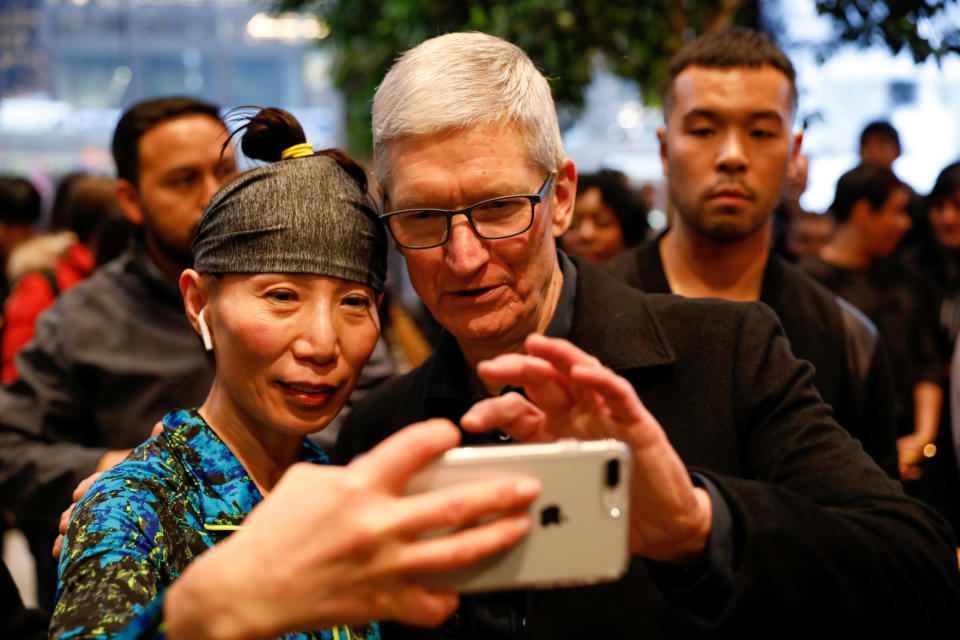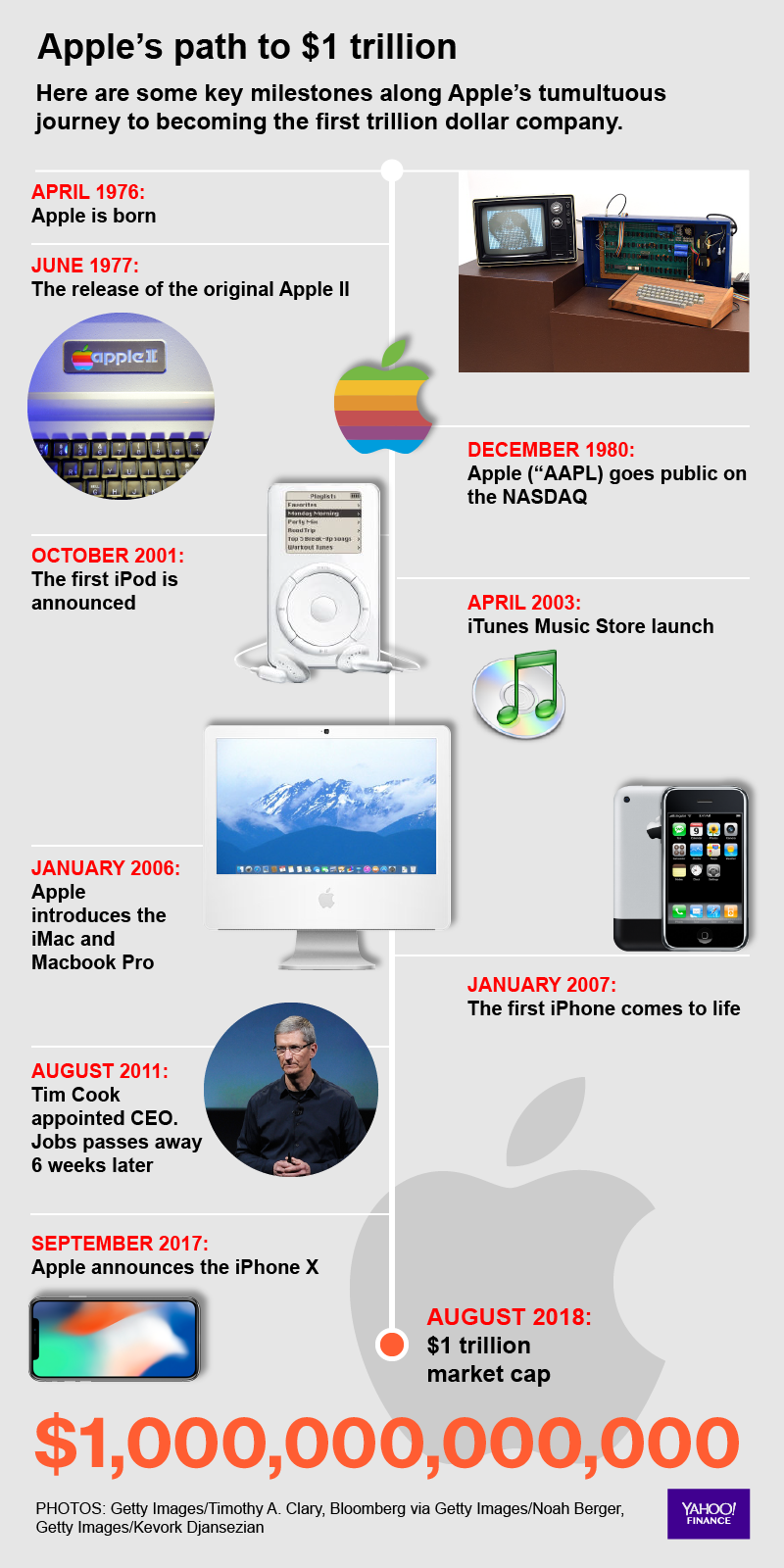Apple is worth $1 trillion
At about 11:48 a.m. ET, Apple (AAPL) became the first U.S.-listed company to be worth $1,000,000,000,000.00.
The price of a single share of Apple crossed $207.0425. Multiply that by 4,829,926,000 shares outstanding and you get a trillion bucks.
Some might argue that $1 trillion is just a random round number. But whether it’s a trillion or $999 billion, the point is that Apple is an incredibly massive company, with an incredible reach, and with an incredible amount of profits (In 2017, Apple earned $48 billion on $229 billion in sales).
In a press release earlier this year, CEO Tim Cook disclosed that Apple’s active installed base of devices reached 1.3 billion in January. While growth in its hardware like iPhones and iPads could be leveling off, the company’s booming services offerings could fuel massive profits for years.
“The fact that you have a billion and a half people with Apple devices around the world in a sense gives them a user base that if they can figure out other ways to make money off that user base,” NYU professor Aswath Damodaran said on CNBC. “I think you could get a bonus on that growth rate.”
[ SEE ALSO: Apple’s tumultuous path to $1 trillion ]
Is it really worth it?
Apple’s prospects at this juncture are critical since stock prices are theoretically just the present value of all of a company’s future cash flows.
“[I]t’s still trading about 17 times next year’s earnings estimates,” said Damodaran, who is also known as the Dean of Valuation. “I mean, compare that to some of the other FAANG names— Alphabet 53 times, Amazon 162 times.”

History is riddled with companies that saw outsized valuations on speculation that these businesses were the next big thing. During the dotcom bubble, companies with no profits but lots of prospects regularly saw billion-dollar valuations.
But Apple is different because it’s actually earning a ton of money.
“You don’t need a +20x price earnings multiple to get to $1 trillion valuation,” Datatrek Research’s Jessica Rabe said in an email on Thursday. “It would be logical, but wrong, to think a huge valuation must stem from a sky-high PE ratio. Apple trades for 17.3 times next year’s consensus estimate, even before you exclude cash. That’s barely above the market multiple of 16.7 times.”
You have to give credit to Tim Cook
In August 2011, Cook had the daunting task of taking over the CEO role for visionary Steve Jobs in August 2011. (Jobs died two months later.)
“On the one hand, yes, Cook was teed up for success by a genius, once-in-lifetime CEO,” Yahoo Finance editor-in-chief Andy wrote in January. “On the other hand, Cook had huge shoes to fill, and more to the point, has not rolled out any revolutionary new products a la Steve. Naysayers said that unless he did that Apple’s stock would falter. To the contrary, it has thrived. Why? In large part because the iPhone’s growth has mitigated that need.”

Among other things, Cook has also navigated the company through the tumultuous Trump presidency brilliantly. While many big brands have drawn the ire of the commander-in-chief, Cook has been drawing attention to the many big investments Apple has been planning within the U.S.
Though, Cook has not been shy about criticizing the administration either. In the company’s quarterly earnings call on Tuesday, he went directly after Trump’s use of tariffs in his tit-for-tat trade war.
“Our view on tariffs is that they show up as a tax on the consumer and end up resulting in lower economic growth,” Cook said. “And sometimes can bring about significant risk of unintended consequences.”
Trump never reacted to that comment, though we don’t know if Trump heard it either.
“Apple is an American company that assembles its products in China,” Datatrek’s Rabe said. “It is so successful in each country that it has avoided the fate of many American transnational companies: being a pi?ata in the global trade/tariff debate. While this political hedge was clearly an accident of history, it works well today.”

–
Sam Ro is managing editor at Yahoo Finance. Follow him on Twitter: @bySamRo
Read more:
Robert Shiller: The stock market today is similar to the stock market in 1928
Janet Yellen nails how investors should think about valuations
The stock market has been in a new price regime for 20 years
Warren Buffett: One metric tells me the most about the future
Follow Yahoo Finance on Facebook, Twitter, Instagram, and LinkedIn